I was reading the "C++ Cookbook" which had the following snippet:
// cout << s << std::endl; // You shouldn't be able to
wcout << ws << std::endl; // run these at the same time
If you're interested in seeing the actual example, here is a link to the page on Google books.
Also, I found this SO question which seems to state that mixing wcout and cout is okay. Could someone explain to me what this comment is talking about?
EDIT
From C++ Standard [27.4.1]:
Mixing operations on corresponding wide- and narrow-character streams follows the same semantics as mixing such operations on FILEs, as specified in Amendment 1 of the ISO C standard.
From C Standard [7.19.2]:
Each stream has an orientation. After a stream is associated with an external file, but before any operations are performed on it, the stream is without orientation. Once a wide character input/output function has been applied to a stream without orientation, the stream becomes a wide-oriented stream. Similarly, once a byte input/output function has been applied to a stream without orientation, the stream becomes a byte-oriented stream. Only a call to the freopen function or the fwide function can otherwise alter the orientation of a stream. (A successful call to freopen removes any orientation.)
Byte input/output functions shall not be applied to a wide-oriented stream and wide character input/output functions shall not be applied to a byte-oriented stream.
So, the standard seems to say that you should not mix them. However, I found this quote from this article:
For Visual C++ 10.0 the fwide function is documented as being unimplemented. And from a practical point of view, at least at the level of outputting whole lines it apparently works fine to intermingle use of cout and wcout. So, happily, Visual C++ apparently just disregards the standard’s requirements and does not maintain an impractical explicit C FILE stream orientation.
And also, concerning gcc I found this quote from here:
This is a (new) feature, not a bug, see libstdc++/11705 and in general search about stream orientation in the C standard (C99, 7.19.2). In a nutshell you cannot mix byte oriented and wide oriented I/O. For now, due to the bug pointed out in libstdc++/11705, you can obtain something close to your expectations by calling std::ios::sync_with_stdio(false); at the beginning of your program.

